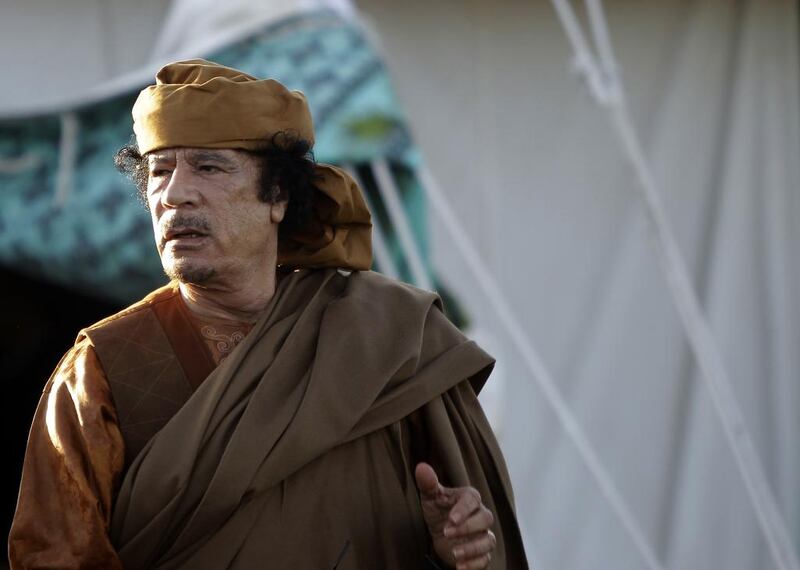Mohamed Hassan is a renowned Libyan singer, musician and composer. He has released many albums since he first appeared on Libya’s music scene in the late 1960s, at around the same time that Muammar Qaddafi rose to political power.
The young Qaddafi became a role model for many young Libyans. Hassan was no exception and he lived what could be considered the Libyan dream – when, thanks to oil production, money was easy and life was simple – which changed the country from a mainly Bedouin society to more modern one.
Hassan became closely associated with the Qaddafi regime, performing songs that glorified its achievements. His first such song was released just a few months after the British airbase in Tobruk was reclaimed in 1970, only six months after Qaddafi came to power.
Relationships between artists and political regimes were quite common in the region, and singers helped the political propaganda machine, although Hassan himself was never fully part of its mechanisms.
Such relationships usually turn sour and this is what happened to Hassan and many other singers and artists in Libya after the regime was toppled in 2011.
Hassan was famous for wearing Libyan national dress and singing in a tent similar to the one that brought Qaddafi fame, which linked him directly to the former leader.
Even when touring abroad he would pitch his tent and his band would sit around him inside it. In its heyday, the tent travelled to many places, including London in 2002, when Hassan sang non-stop for more than five hours at the Royal Albert Hall.
Hassan was well-known across North Africa, but not very famous in the rest of the region, perhaps because of his reluctance to sing in different Arabic dialects. He did, however, produce some songs in standard Arabic. Few people are also aware that he has composed music for many famous Arab singers.
Eventually, Hassan’s close relationship with the regime proved to be problematic. During the civil war that followed Libya’s 2011 revolution, he appeared on state TV calling for peace and dialogue, while refusing to denounce the regime.
Many rebels considered this to be favouring Qaddafi.
When the regime was destroyed, Hassan did not leave his home in the western coastal city of Al Khums, which sits an hour’s drive west of Tripoli.
However, his huge personality and, indeed, the respect he commanded among Libyans, seem to have helped him.
He was neither jailed nor forced to leave the country, but rumour has it that he was mistreated at the hands of young rebels.
Sources close to him told me that he was not allowed to leave the country in 2013 to seek medical treatment abroad.
Hassan’s career appeared to be slowly winding down as he did not produce any new albums for three years after the uprisings.
Despite his historic popularity, few producers would risk working with him, given his association with the former regime.
But in late 2014 a radio station put out his new single, which contained a strong pro-reconciliation political message. The song was about forgetting animosities and rebuilding Libya.
His story is typical of what happened to many who are rightly or wrongly associated with the former regime or for not being vocal in their support for the Nato intervention in 2011.
Despite everything, Hassan will endure as one of Libya’s most famous artists and is credited with reintroducing Libyan traditional songs to generations who would otherwise know little about them. He may have fallen silent, but Hassan’s legacy continues to live on.
Mustafa Fetouri is a Libyan academic and journalist





